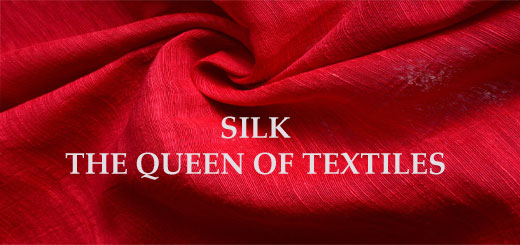Silk is known as the Queen of all Textiles. It spells grace, class, luxury and comfort. The history of silk is both illustrious and fascinating. Originated in China, silk is one of the oldest fibres known to man. Though there are over 40 countries who produce silk, bulk of it is produced in China and India, followed by Japan, Brazil and Korea. The few features like inherent affinity for vibrant colours and dyes, high absorbance, flexibility, light-weight and excellent drape have made silk, the inevitable and irresistible companion of the eve, worldwide. This fibre is natural animal product which makes it quite expensive.
According to Chinese legend, Empress Hsi Ling Shi, wife of the mythical Yellow Emperor Huang Ti, was the first person to discover silk as weavable fibre. She was honoured with the title Goddess of Silk for her greatest discovery. The story of this discovery goes like this: While sitting under a mulberry tree in her palace garden, Lady Empress His Ling Shi was having a hot cup of tea. A cocoon fell into her cup from the branches of the tree and as she watched, a strong and shiny white thread unravelled itself. This accidental process gave rise to the queen of all textiles, Silk.
China is recognized as the first country to produce silk around 3000B.C. One of the key elements of Chinese economy, silk, was being used for fishing-lines, musical instruments, rag paper and bowstrings. It soon became the cloth of royalty, emperors and a great source of wealth. It was also used as currency in domestic and foreign trade. Chinese traders exchanged silk in return for jewels and spices bought in India. It is believed that silk was brought to India by a Chinese Princess, married to an Indian prince, who hid eggs and mulberry seeds in her head dress. This is how silk came into the hands of Indians.


